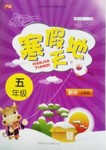题目内容
【题目】完形填空
阅读下面短文,掌握其大意,然后从各小题所给的四个选项 (A、B、C和D) 中,选出最佳选项。
Early Native American groups lived in different cultural areas. Their environments had 1 resources. Each group made particular products or developed certain skills, based on their own 2 . As they perfected their skills, 3 exciting began to happen. For the first time in their history, they had more things than they 4 .
They wouldn’t let their products go to 5 , of course. When Native American groups began to communicate with each other, they began to 6 things with others. The 7 they traded goods and services without using any form of money was called bartering(以物易物). Thanks to bartering, people began to enjoy a better 8 of life. To barter with others meant that work became much 9 . No one group had to work as hard as before to make or find everything they needed for survival.
Native American groups would often travel long distances for the chance to 10 with each other. In between trading times, they would 11 or collect extra products. They kept them especially for the 12 of bartering with other native groups at their trade meetings.
Another 13 of trading between cultural areas was that people could enjoy products that were 14 to make with the resources in their own 15 . For example, people from the Desert Southwest area 16 tools made from whalebone(鲸骨). There was no whalebone available in the 17 . However, they could get it fromthe natives living in the Pacific Northwest area.
Some people 18 use bartering today to get things they need. You might 19 to do the dishes for your brother if he will take you to the movies. Especially in hard economic 20 people return to the age-old way of getting things they need.
【1】A. strange B. ordinary C. similar D. different
【2】A. skills B. interests C. resources D. customs
【3】A. everything B. something C. anything D. nothing
【4】A. found B. collected C. needed D. sold
【5】A. market B. town C. waste D. charity
【6】A. buy B. share C. produce D. save
【7】A. way B. idea C. plan D. study
【8】A. variety B. habit C. quantity D. quality
【9】A. harder B. dirtier C. easier D. nicer
【10】A. greet B. trade C. work D. play
【11】A. use B. create C. send D. advertise
【12】A. goal B. value C. purpose D. point
【13】A. choice B. trouble C. benefit D. pleasure
【14】A. illegal B. necessary C. impossible D. natural
【15】A. desert B. trade C. group D. area
【16】A. designed B. wanted C. discovered D. invented
【17】A. water B. sea C. desert D. land
【18】A. yet B. still C. even D. never
【19】A. fear B. earn C. offer D. refuse
【20】A. developments B. changes C. disadvantages D. times
【答案】
【1】D
【2】C
【3】B
【4】C
【5】C
【6】B
【7】A
【8】D
【9】C
【10】B
【11】B
【12】C
【13】C
【14】C
【15】D
【16】B
【17】C
【18】B
【19】C
【20】D
【解析】
【语篇解读】本文是一篇说明文。文章介绍了早期美洲土著居民的易货贸易。
【1】早期美洲土著部落住在不同的文化区域,因此他们生活的环境拥有"不同的(different)"资源。
【2】每个部落基于自身的"资源 (resources)"生产特定的产品或者开发某些技术。
【3】随着这些部落的技术的日臻完善,激动人心的"事情 (something)"开始出现了。
【4】根据语境可知,他们生产的东西比"需要(needed)"的多了。
【5】根据美洲土著部落之间进行的易货贸易可推知,他们当然不会让多余的产品"浪费(go to waste)"。
【6】易货贸易就是部落之间相互"分享(share)"东西。
【7】不用钱而以货物或者服务作为交易的"方式(way)"被叫做以物易物。
【8】此处指人们开始享受更高"品质(quality)"的生活。
【9】根据下文的"No one group had to work as hard as before to…"可知,由于易货贸易的出现,人们开始享 受更高品质的生活,工作变得"更加容易(easier)"。
【10】根据下文的"trading times"可知,美洲土著居民经常长途跋涉是为了相互之间做"交易(trade)"。
【11】根据上文的"Each group made particular products"和下文的"They kept them especially for the
i. of bartering"可知,不进行交易的时候,美洲土著居民就"生产(create)"或者收集多余的产品。
【12】结合上下文语境可知,他们这样做是"为了(for the purpose of)"进行易货贸易。
【13】 上文讲了易货贸易给美洲土著居民带来的一个好处(即提高了生活品质),本段说的是另外一个"好处 (benefit)"。
【14】 根据下文举的例子可知,通过易货贸易人们可以享受在本地"不可能(impossible)"做成的产品。
【15】参见上题解析。文中多次出现的"area"也是提示。
【16】例如,西南沙漠地区的人"想要(wanted)"鲸骨做成的工具,可以从西北太平洋地区的人那里得到。这是 为了说明易货贸易的另一个好处。
【17】根据上文的"the Desert Southwest area"可知,应填desert。
【18】根据下文举的例子可知,如今人们"仍然(still)"通过易货贸易来得到他们所需要的东西。
【19】如果你哥哥愿意带你去看电影的话,你也许会"主动(offer)"帮他洗碗碟。
【20】此处意为"在经济困难时期",所以用times。

 寒假天地重庆出版社系列答案
寒假天地重庆出版社系列答案